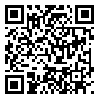Volume 3, Issue 1 (7-2021)
مطالعات فقه و حقوق رسانه 2021, 3(1): 79-110 |
Back to browse issues page
Download citation:
BibTeX | RIS | EndNote | Medlars | ProCite | Reference Manager | RefWorks
Send citation to:



BibTeX | RIS | EndNote | Medlars | ProCite | Reference Manager | RefWorks
Send citation to:
Media Audience Rights from the Perspective of Shia Jurisprudence. مطالعات فقه و حقوق رسانه 2021; 3 (1) :79-110
URL: http://journal.refah.ac.ir/article-1-56-en.html
URL: http://journal.refah.ac.ir/article-1-56-en.html
Abstract: (547 Views)
The expansion of media and the use of communication technologies have given rise to new legal issues. One of these important topics is the rights of media audiences. Audience rights are concepts that have emerged alongside the third wave, the information revolution, in the world of communication, and have blossomed as a new type of public rights for citizens. In the discussion of media audience rights, audiences are divided into two categories: general and specific. In addition to enjoying the rights belonging to the general audience, special audiences also benefit from specific rights and privileges. Since this research pertains to the general rights of media audiences, the most significant aspects of the general audience rights in media will be examined from a jurisprudential perspective (such as the right to security, producing writings and any otner mass media, whether visual or auditory, that contain deviant content. It investigates the question of what types of deviations lead to sanctity and whether all deviations are considered forbidden, or if only specific deviations, such as deviations in fundamental beliefs, are deemed prohibited. Any production that misguides people in religious matters, including principles and branches of religion, is considered forbidden. This necessity is supported by evidence suggesting that the producer has no intention for such deviations. Thus, a misleading book is one that leads to misguidance, regardless of whether the author intended it. However, those who read it will be misled, just as with a misleading film or any other cultural product. Therefore, avoiding the danger of misguidance and leading people astray is a matter highly valued by Islamic law, which never condones negligence or complacency in this regard. Protecting the authentic beliefs of individuals and preserving their religion is one of the important duties of Islamic governance. Hence, based on the evidence provided by verses and narrations, it can be concluded that the production of any product that misleads people is forbidden, and the intention of the producer plays no role in determining its sanctity.
Type of Study: Research |
Subject:
General
Received: 2021/03/5 | Accepted: 2021/05/9 | Published: 2021/07/10
Received: 2021/03/5 | Accepted: 2021/05/9 | Published: 2021/07/10
| Rights and permissions | |
 |
This work is licensed under a Creative Commons Attribution-NonCommercial 4.0 International License. |

